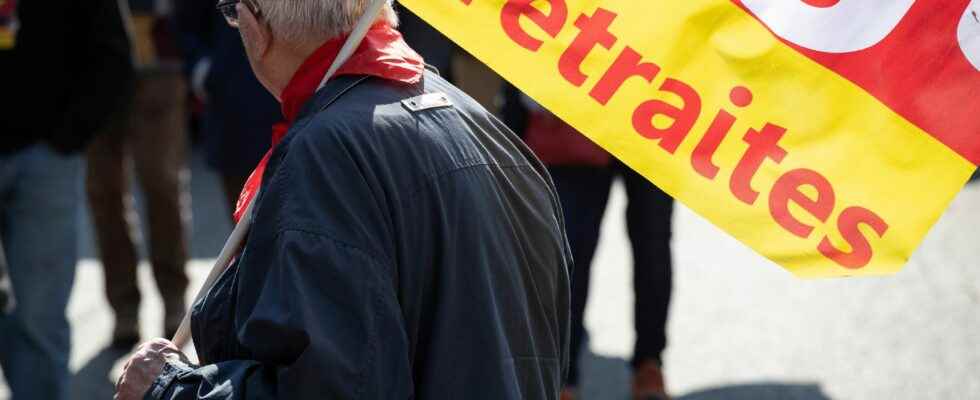The strike against the pension reform promises to be particularly popular this Thursday, January 19. Demonstrations, closed schools and drip trains: France is preparing to experience a first day of eventful mobilization. “A rough Thursday,” summed up the Minister of Transport, Clément Beaune.
United for the first time in twelve years, the unions plan rallies in 215 to 250 cities according to sources, and hope for a “massive” mobilization exceeding “one million” demonstrators. The police unsurprisingly set the bar lower: security sources are counting on a range of 550,000 to 750,000 demonstrators. The Minister of the Interior, Gérald Darmanin, announced that more than 10,000 police and gendarmes would be mobilized, including 3,500 in Paris, where the authorities expect the arrival of “a few thousand” violent elements.
On Wednesday, government spokesman Olivier Véran called for the mobilization not to turn into a “blockage” of the country. According to an Ifop poll for the JDD27% of French people plan to demonstrate this Thursday and 12% of them say they are certain to participate in the demonstration against this reform.
Emmanuel Macron for his part pointed the finger on Wednesday at certain unions which would like to “block the country”, according to a participant in the Council of Ministers. “We must distinguish between the unions which call for demonstrations in a traditional and republican framework, and those which are in a deliberate process of blocking the country, even of targeting parliamentarians”, declared the head of state in front of his government meeting at the Elysée, according to comments reported by this participant.
“Very disturbed” traffic in the Paris region
In public transport, metro, RER and commuter train traffic in the Paris region is “very disrupted” this Thursday with three metro lines completely closed and ten lines only operating, sometimes partially, during rush hour. There is only one train out of two during peak hours for the RER A and one train out of four during off-peak hours, with an end of service around 9 p.m.
Only one out of two trains runs at peak times and one out of three trains at off-peak times on the southern part of the RER B operated by RATP, which will also close early, as the interconnection is not guaranteed with the northern part where the SNCF plans one in three trains.
On the suburban train network, the SNCF plans, according to a press release, one train in three on lines H, L and U, and one train in four on the N, without serving Cergy or the Mantes – Plaisir-Grignon section. . The company plans less than one in ten trains on lines C, D, E, J, K and P and none on R. Most of these lines will only run during peak hours and/or on part of their journey. The situation should be better for RATP buses, with two out of three crossings in Paris and in the inner suburbs, but still a dozen lines interrupted.
The strike will also be followed by air traffic controllers, in particular at Orly airport where the General Directorate of Civil Aviation (DGAC) has asked companies to preventively cancel 20% of their flights, while warning that this would not prevent “disruptions and delays”.
Some 70% striking teachers in the first degree
The mobilization also promises to be very popular in schools, with 70% of striking teachers expected at the national level in the first degree and “at least a third” of establishments closed in Paris, according to the Snuipp-FSU, the first primary union. . The mobilization would thus be of the same magnitude as in December 2019: during the first day of the strike against the previous reform attempt, the unions had counted 70% of strikers, while the ministry had identified 55%. In colleges and high schools, “we are also moving towards a very followed strike”, according to the first elements collected by the Snes-FSU, the first secondary union.
Supported by all the trade unions in the energy sector, the strike will also result in cuts in the production of power plants which should not lead to power cuts. “It’s something that is perfectly framed,” says Pascal Jacquelin, number two of CFE-Energie. In refineries and fuel depots, the CGT has already set its schedule: after that of Thursday, it plans other work stoppages of 48 hours on January 26 and 27, then 72 hours from February 6 to 8, while will begin the examination of the text in the National Assembly.
A sign that the mobilization expected this Thursday should be significant, the petition launched last week by the eight main French unions against a pension reform deemed “unfair and brutal” crossed the 500,000 signature mark on Wednesday. This text published on the site change.org and carried by the CFDT, the CGT, FO, the CFE-CGC, the CFTC, the Unsa, the FSU and Solidaires totaled nearly 515,000 signatures on Wednesday at the start of the afternoon.
